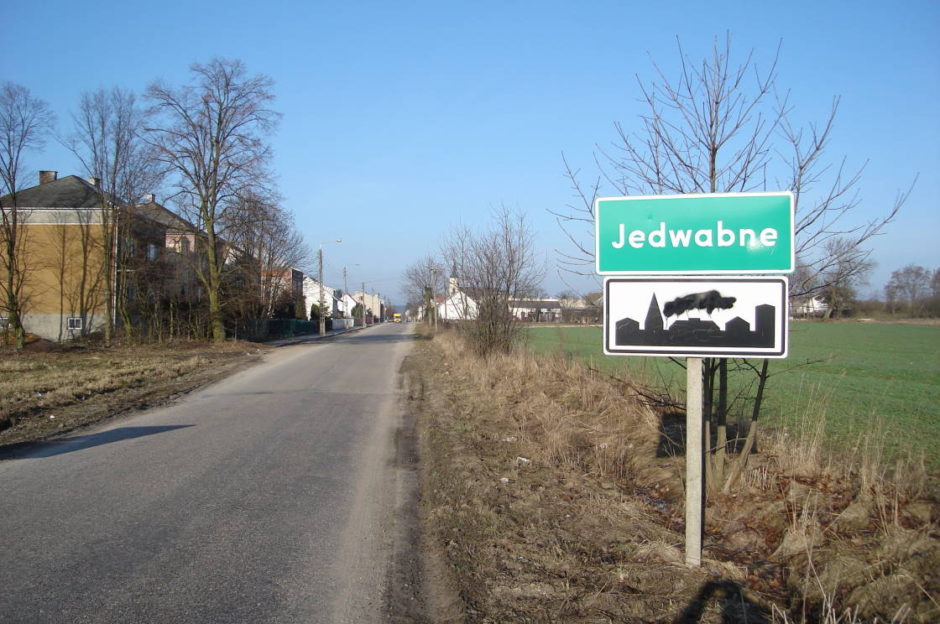As Poles wrestle with the extremely complex legacy of the Holocaust in Poland, where three million Polish Jews perished in six short years, a cabinet minister in Poland’s government has suggested that historical accounts of the 1941 pogrom in the town of Jedwabne may be nothing more than “very biased opinions.”
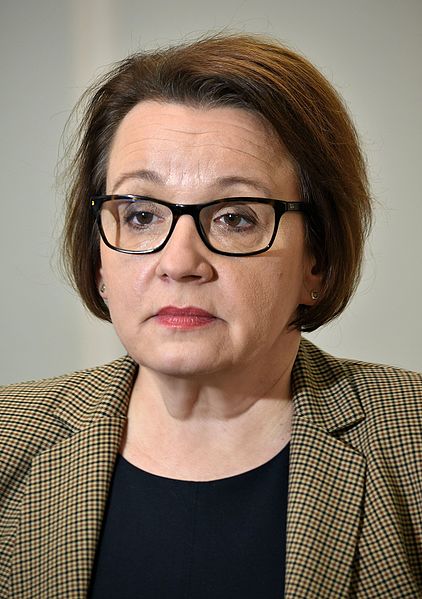
As reported by the Jewish Telegraphic Agency, Education Minister Anna Zalewska recently claimed, “It is a historical record in which there have been many misunderstandings, many very biased opinions. The tragic situation that took place in Jedwabne is controversial. Many historians, eminent professors, show completely different scenarios.”
This is revisionism of an appalling order — a brazen attempt to rewrite history and maintain the fiction that Poles can only be seen as heroic victims of Nazism.
It’s an undeniable fact that Poles suffered terribly during the inhumane German occupation. Three million died or were killed from 1939 to 1945. But it’s also true that a very small minority of Poles acted very badly, killing and blackmailing Jews and collaborating with the Nazis.
With respect to Jedwabne, it has been established beyond a shadow of a doubt that a group of Polish Catholics, egged on by the Germans and encouraged by the mayor, murdered hundreds of Polish Jews there on July 10, 1941, shortly after the Red Army withdrew and left the town to the tender mercies of the German invaders.
The killing spree, which climaxed with the burning of scores of Jews inside a barn, had been widely attributed to the Germans. But this has been proven to be a self-serving myth. As the Polish American historian Jan Gross pointed out in his landmark book, Neighbors: The Destruction of the Jewish Community in Jedwabne, Poland, Poles were directly complicit in this atrocity.
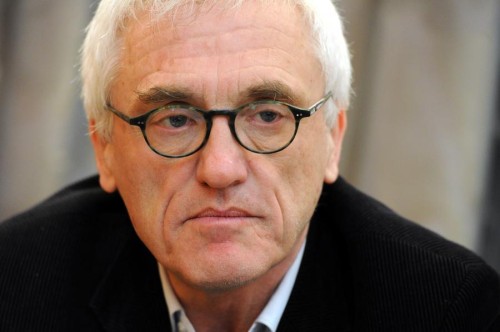
Gross’ rigorous account, published 15 years ago, was corroborated in meticulous and fair fashion by the Polish journalist Anna Bikont in The Crime and the Silence: Confronting the Massacre of Jews in Wartime Jedwabne, which came out last year.
The deputy director of Poland’s Institute of National Remembrance, Piotr Gontarczyk, has confirmed as well that Poles were the perpetrators in Jedwabne.
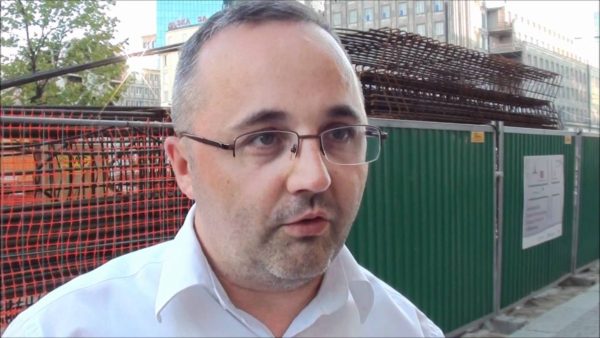
And three Polish presidents — Aleksander Kwasniewski, Bronislaw Komorowski and Andrzej Duda — have acknowledged that Poles committed this atrocious crime.
On the 60th anniversary of the pogrom, in 2001, Kwasniewski conceded that the murderers were Poles and that they had been incited by the German occupiers. In 2011, in an indirect reference to the Polish killers, Komorowski begged for “forgiveness” for the actions of “perpetrators among the nation of victims.”
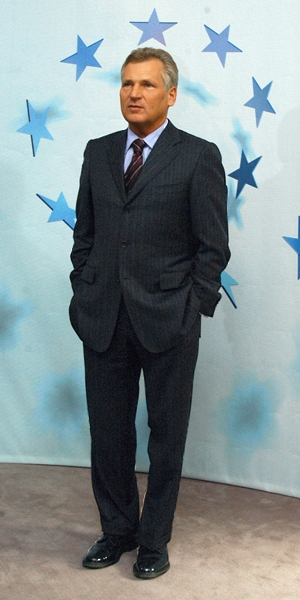
Prior to his election as president, Duda criticized Komorowski for his apology. But during a television debate in 2015, he said, “We did not, as we are falsely accused by others, participate in the Holocaust. Lord knows that Poles didn’t take part in the Holocaust.”
Earlier this month, Duda had a change of heart. Speaking in Kielce on the 70th anniversary of a pogrom which claimed the lives of 42 Jews, Duda said, “Also ordinary people were involved in the attack. I leave it to historians and sociologists to determine how it happened and why it happened, why people reacted in this particular way.”
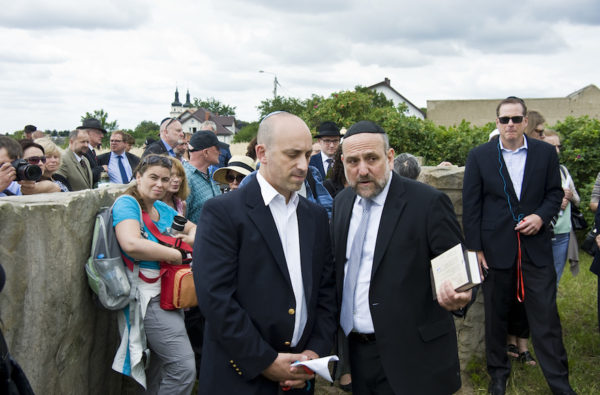
Sadly, Jedwabne was not a unique incident in the annals of the Holocaust in Poland. According to Poland’s chief rabbi, Michael Schudrich, upwards of 2,500 Jews were slaughtered in 20 pogroms in Poland during and after World War II.
Three examples will suffice.
Shortly before the Jedwabne atrocity, Jews were butchered by Poles in the towns of Wasosz and Radzilow. After Jedwabne, a pogrom was unleashed by Poles in Radzilow.
Previous Polish governments have acknowledged Polish culpability in pogroms, but the current government prefers to highlight the role of the 6,600 courageous Poles who saved thousands of Jews during the Holocaust. These Poles have been rightly honored as righteous gentiles by Yad Vashem, the Holocaust research and education center in Jerusalem.
Four months ago, the Polish government invited journalists from several countries to cover the opening of a new museum in the town of Markow named after a courageous Polish couple murdered by the Germans for having hidden Jews in their home. As one of the reporters on the trip, I had the privilege of covering an event that cried out for publicity.
It goes without saying that the focus of the museum is on Poles who risked their lives on behalf of Jews, and that the abysmal story of Poles who behaved badly toward Jews is virtually ignored. As I wandered past its exhibits, I could not help but think that the Polish government was trying to change the narrative so as to distract attention away from the dark side of things.
In accordance with this policy, Poland has launched a criminal investigation of Gross and is considering the possibility of withdrawing a state honor that was conferred on him some years ago. In April, Polish police questioned Gross for supposedly violating its law against “insulting the Polish nation.” Gross had infuriated the government by claiming that more Jews than Germans had been killed by Poles during the war.
It’s instructive that neither the residents of Jedwabne, nor its mayor, attended a recent ceremony in Jedwabne marking the 75th anniversary of the pogrom.
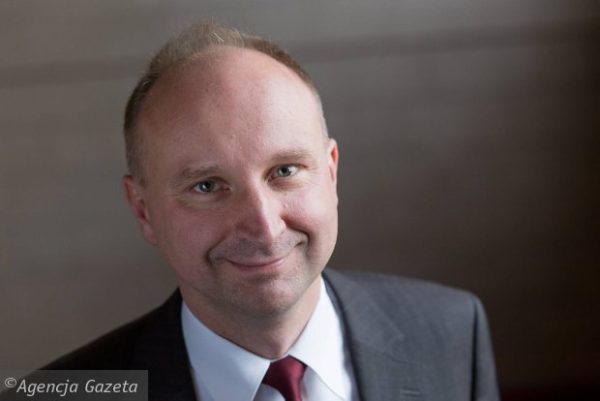
The Polish government, however, sent its undersecretary of state, Wojciech Kolarski, to Jedwabne. He did not speak at the event, which was attended by 150 visitors, including Anti-Defamation League CEO Jonathan Greenblatt. But he told the Jewish Telegraphic Agency that Poles who had murdered Jews in Jedwabne had “damaged an ancient tradition” of coexistence in Poland.
To say the least.
